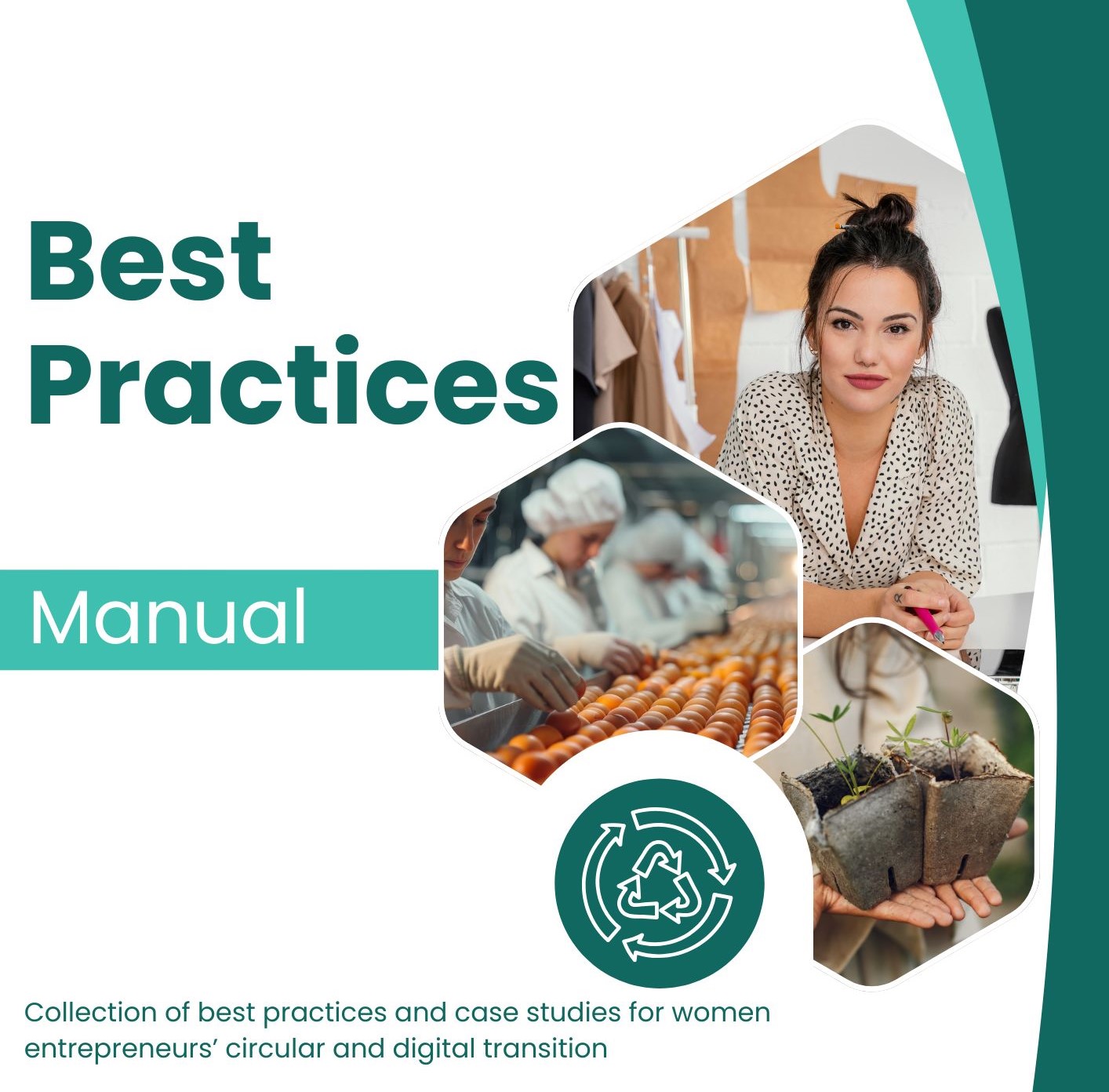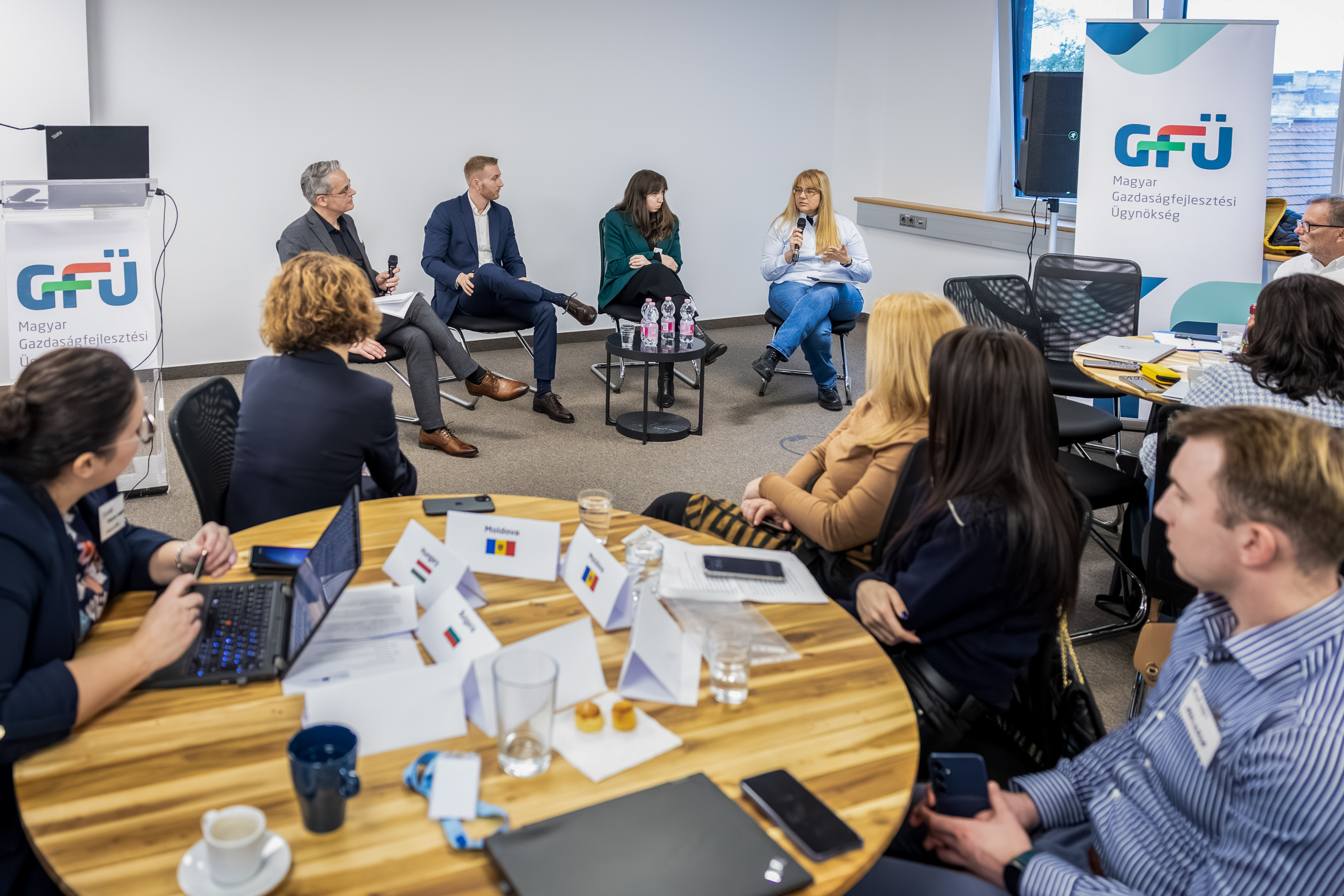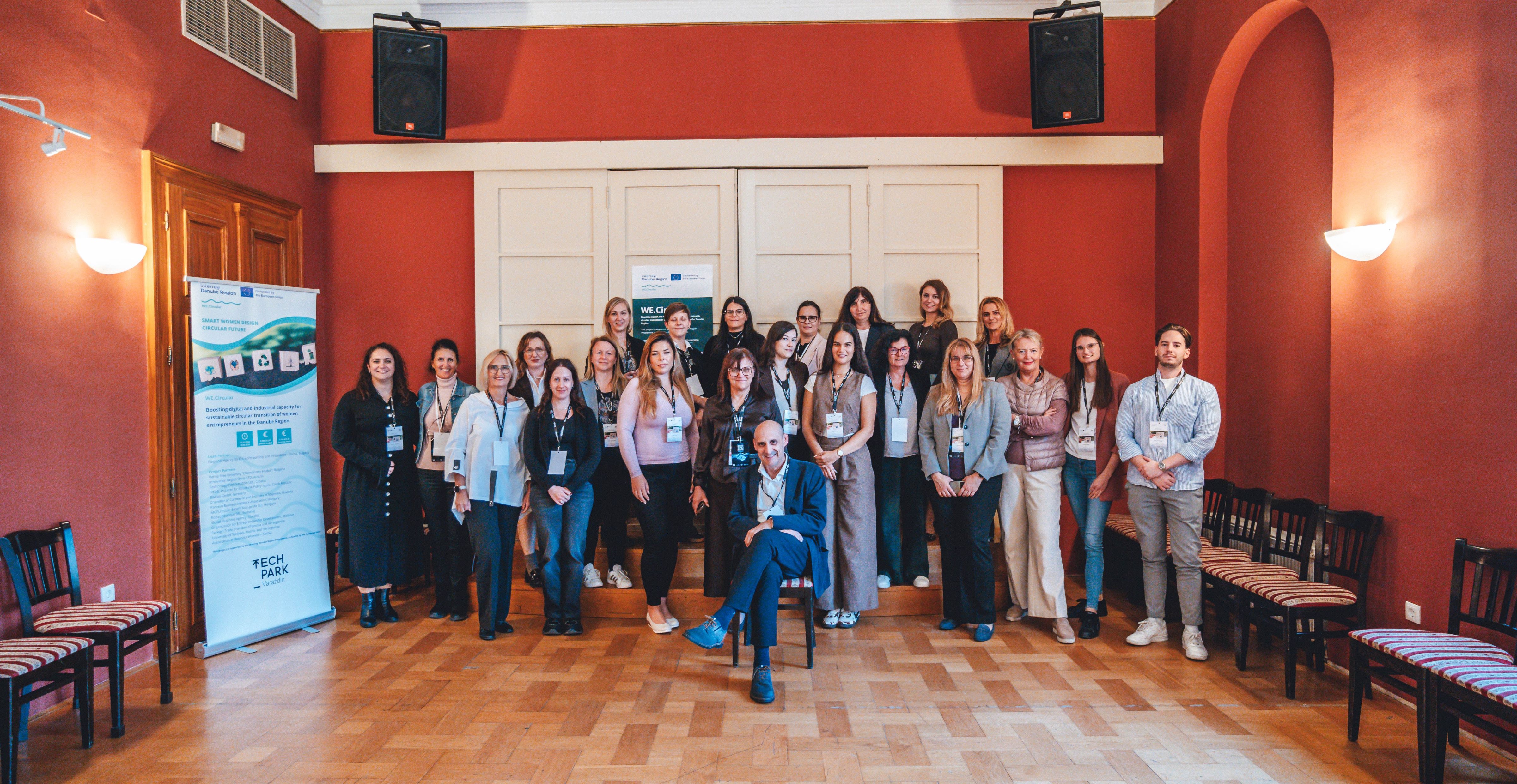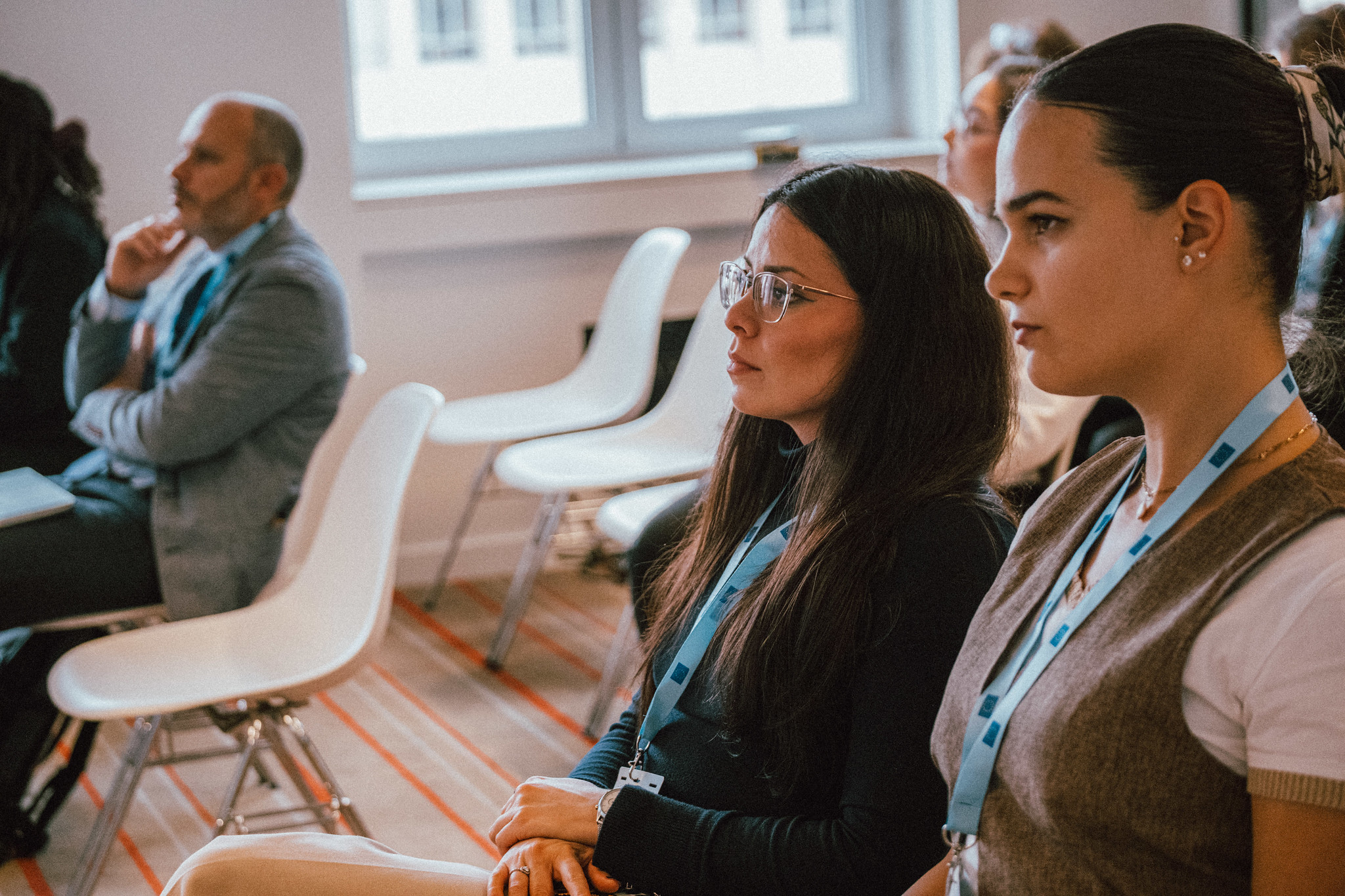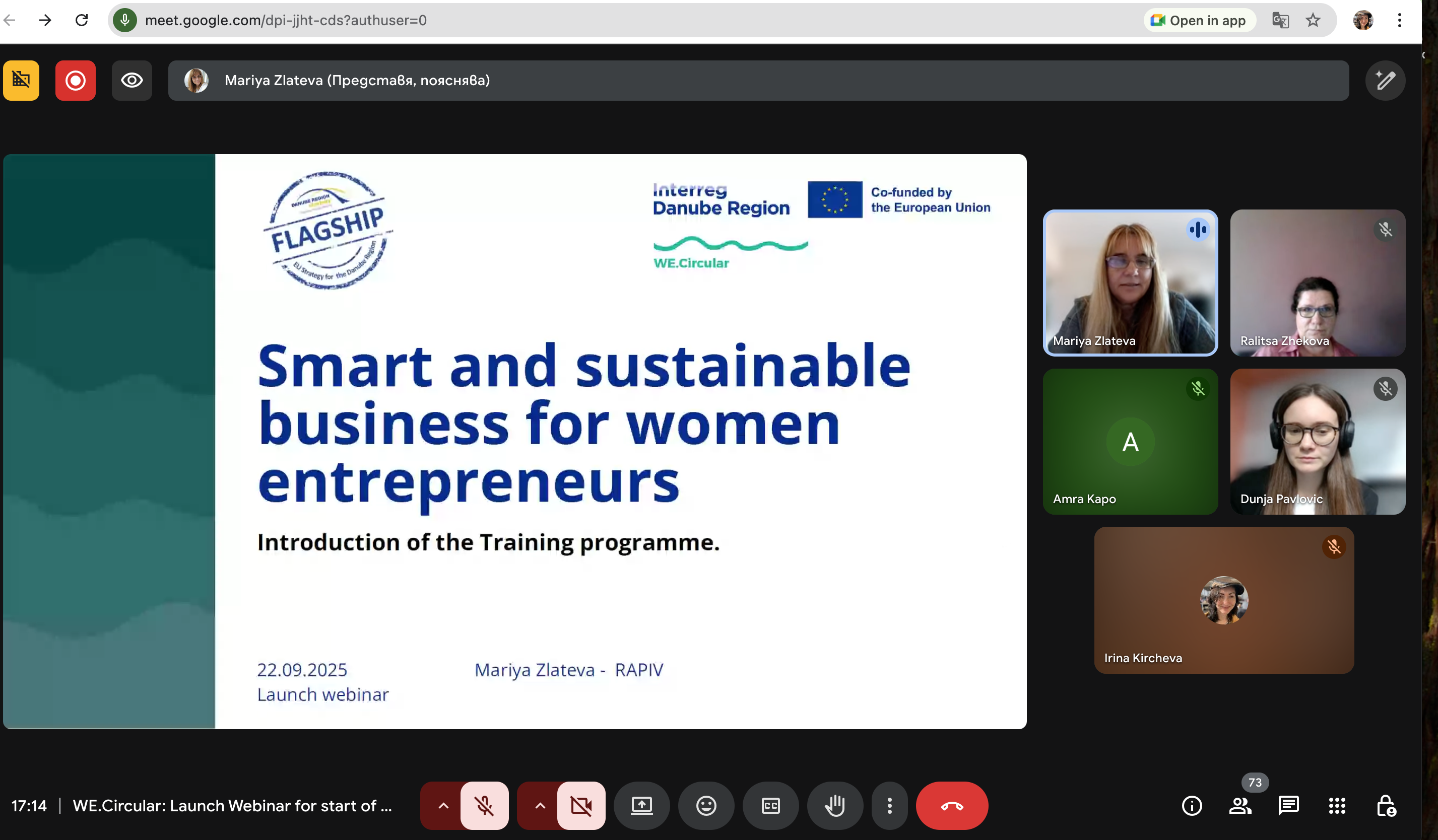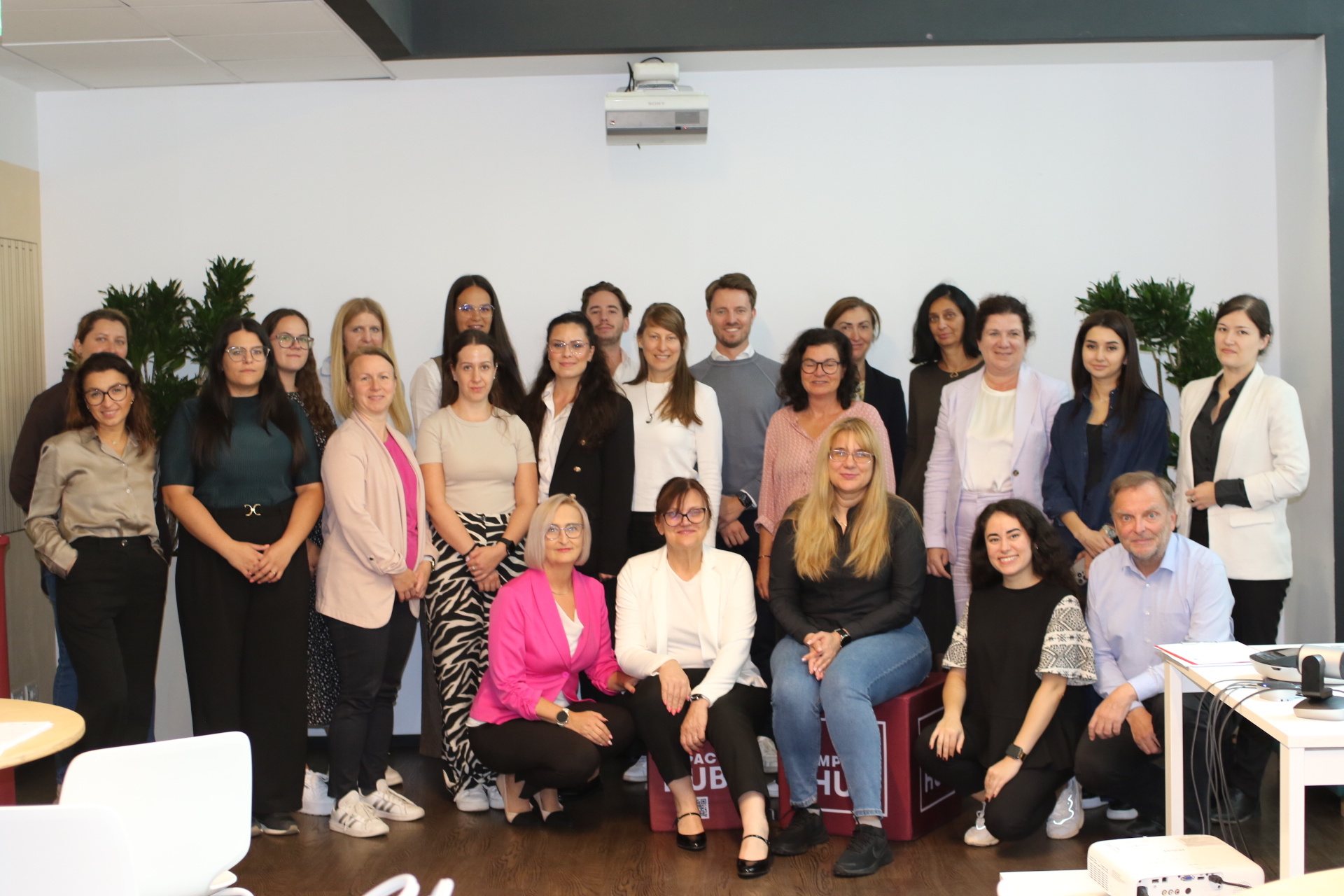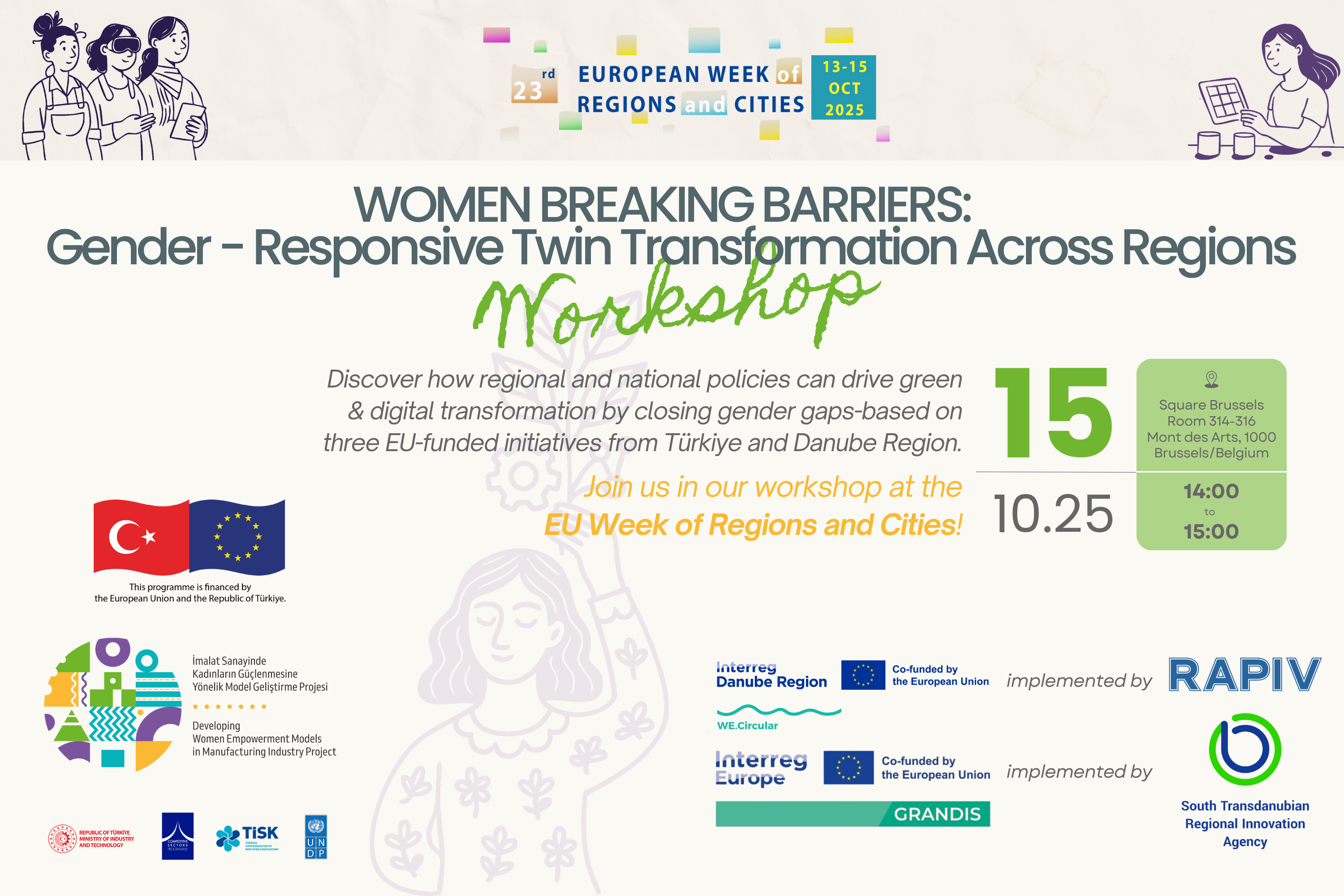
The results from the joint study on women entrepreneurs digital and circular skills needs and gaps are already available!
WE.Circular project partners launched a new Transnational Skills Gaps and Needs Analysis. It synthesizes the current state of women entrepreneurs in twelve countries in the Danube region and their specific needs for circular and digital transitions.
The countries included are Austria, Bosnia and Herzegovina, Bulgaria, Croatia, the Czech Republic, Germany, Hungary, the Republic of Moldova, Romania, Serbia, Slovakia and Slovenia. The data for Germany is specific to the region of Baden-Württemberg and does not represent the entire country.
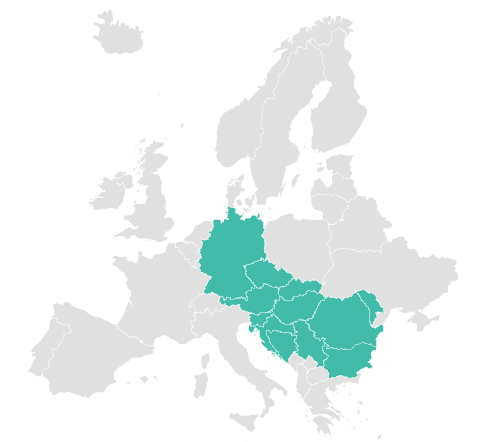
Main barriers to adopting more advanced digital technologies among women entrepreneurs in the Danube region are high investment costs, which suggests that the financial burden of acquiring and implementing new technologies is a major deterrent. This is followed by a lack of skills and knowledge on how to effectively implement these technologies, indicating a need for more educational resources and training programs.
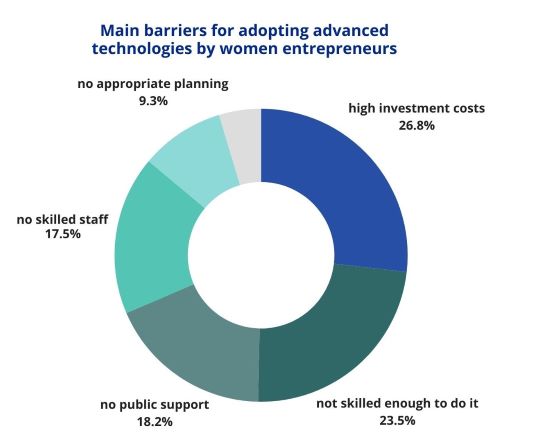
Limited access to technology and infrastructure, particularly in rural areas, hinders women’s ability to compete effectively in the digital economy. Social norms that view women as primary caregivers reduce the time available for business development and learning, further disadvantaging them in the entrepreneurial landscape. The digital transition is hindered by the need for advanced digital skills among team members and challenges in balancing work-life commitments, which affects participation in ongoing education and training.
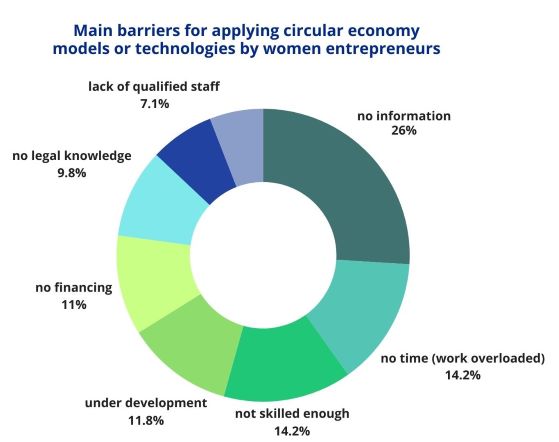
Key recommendations could be group as follows:
1) Acquiring/ improving skills – development of specialized training programs; prioritize skill development and management training in sectors like agriculture, food, textile and fashion, construction, and energy, where circular economy practices can be most impactful; promote examples of successful women entrepreneurs to inspire and motivate others. Implement awards and recognition programs to boost visibility and motivation.
2) Providing of business support - enhance networking and mentorship; introduce targeted financial mechanisms like grants, preferential loans, and microcredits to help women invest in new technologies and circular business models; ensure that women entrepreneurs have the necessary digital tools and high-speed internet to participate fully in the digital economy.
3) Policy improvement - promote inclusive policies; encourage policies and workplace practices that support flexible work arrangements, helping women balance professional and personal responsibilities; encourage government and private sector collaboration; Increase efforts to spread awareness of circular economy benefits, provide accessible education, and ensure that resources are available to help women entrepreneurs seize new opportunities. Promoting sustainability as a key business topic to ensure broader acceptance and the need for specialized software to manage sustainability data efficiently.
Read more about the Transnational Skills Gaps and Needs Analysis and get insights from 12 countries analysis in the Library section.
News & Events
Read the most recent updates and explore the upcoming events.



